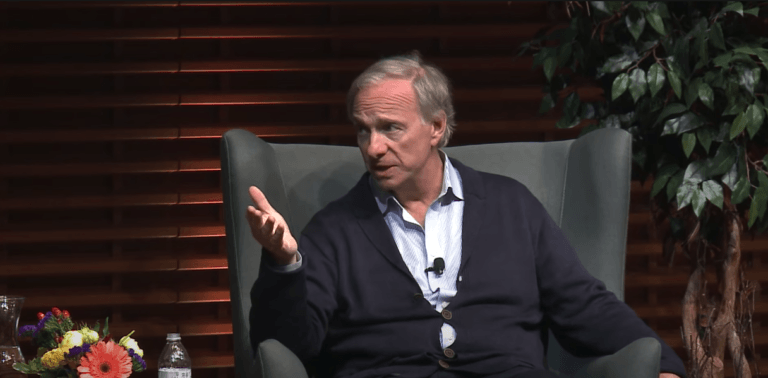On Tuesday (November 17), the day that Bitcoin smashed through the $17,000 level, legendary billionaire hedge fund manager Ray Dalio admitted that his assumptions about Bitcoin might be incorrect.
Dalio is the founder, chairman, and co-chief investment officer of Bridgewater Associates.
The 71-year American whose net worth is estimated to be around $18.7 billion created asset management firm Bridgewater Associates from his New York City apartment just two years after receiving his MBA from Harvard Business School. Bridgewater Associates had $138 billion in assets under management as of April 2020, and its many institutional clients include “pension funds, endowments, foundations, foreign governments, and central banks.”
In an interview with Yahoo Finance correspondent Julia La Roche took place on October 26 at a virtual event called “Yahoo Finance All Markets Summit: Road to Recovery,” Dalio was asked for his take on digital currencies.
This is how he replied:
“Digital currencies — let me break them down into two types. There’s the type in which it’s like a Bitcoin type of currency that’ll be an alternative currency in terms of its supply/demand and an alternative storehold of wealth… and then there’s digital currencies — that means they’ll be other types of currencies, let’s say the dollar or the euro or the Chinese Renminbi be that is digitalized.
“I think we’re going to see a lot more of that second type, but I think that there are three main problems of the first type… Theoretically it’s good, but the three basic things are a currency has to be an effective medium of exchange, storehold of wealth, and the governments want to control it.
“So, I today can’t take my bitcoin yet and go buy things easily with it, and as a storehold of wealth, it’s so volatile that its volatility based on speculation is so much greater that it’s not an effective storehold of wealth and which is also one of the reasons it’s a problem to be a transaction vehicle because if a vendor says I’m going to get paid in Bitcoin and they don’t know what that means in terms of their other liabilities — that’s a problem.
“And then thirdly… if it becomes material, governments won’t allow it. I mean, they’ll outlaw it, and they’ll use whatever teeth they have to enforce that. They would say, okay, you can’t transact with Bitcoin, you can’t have Bitcoin.
“So, then you have to sort of be almost like ‘is it a felony and I’m gonna have to be a felon in order to transact?’”
Then, on November 12, Dalio was criticized by Twitter user “@Dr_Mario_MD”, who said that “his opinion on BTC at the moment clearly reflects a lack of deep insight in the matter.”
Well, earlier today, admitted that his understanding of Bitcoin might need some correction, and through a series of tweets, summarized his main objections to Bitcoin:
Not surprisingly, various prominent crypto influencers rushed in to offer to educate Dalio on Bitcoin. Here are a couple of examples:
Last Friday (November 13), Ria Bhutoria, Director of Research at Fidelity Digital Assets, a subsidiary of Boston-headquartered American multinational financial services company Fidelity Investments (“Fidelity”), published an article titled “Addressing Persisting Bitcoin Criticisms” that seems tailor-made for Dalio.
The six criticisms addressed by Fidelity in that article are as follows:
- “Bitcoin is too volatile to be a store of value.”
- “Bitcoin has failed as a means of payment.”
- “Bitcoin is wasteful.”
- “Bitcoin is used for illicit activity.”
- “Bitcoin is not backed by anything.”
- “Bitcoin will be replaced by a competitor.”
In the conclusion of the article, Fidelity points out that while their article might not “cover the exhaustive list of criticisms against bitcoin,” they believe that their “responses” could be “adapted to address other common misconceptions.”









